Traditional Steels
Revitalise your dull blades with our high-quality knife sharpening steels. Ensure razor-sharp precision for effortless cutting every time.
Free Giftwith orders over £100. Your free gift will be added at Checkout.
Best Selling Products
-
52% OFF
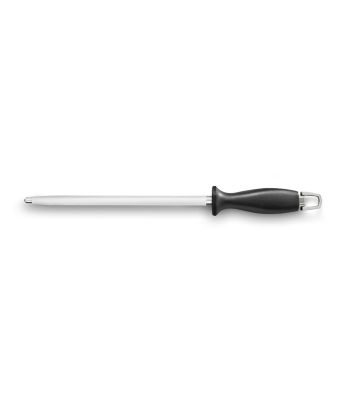 Lion Sabatier® 25cm Round Steel Sharpening Rod/Steel (864100)£21.00 Regular Price £17.95 Special Price £10.00 (52% OFF)Next Day Delivery Available* order by 3pmIn stock
Lion Sabatier® 25cm Round Steel Sharpening Rod/Steel (864100)£21.00 Regular Price £17.95 Special Price £10.00 (52% OFF)Next Day Delivery Available* order by 3pmIn stock -
10% OFF
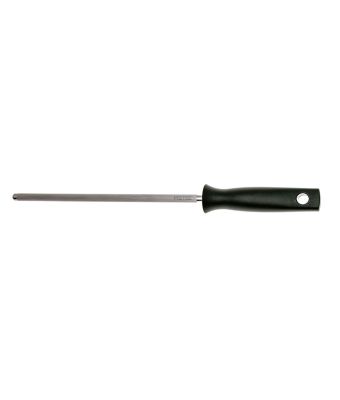 Wusthof Silverpoint 23cm Honing Steel (WT3049700423)£25.00 £22.50 (10% OFF)Next Day Delivery Available* order by 3pmIn stock
Wusthof Silverpoint 23cm Honing Steel (WT3049700423)£25.00 £22.50 (10% OFF)Next Day Delivery Available* order by 3pmIn stock -
18% OFF
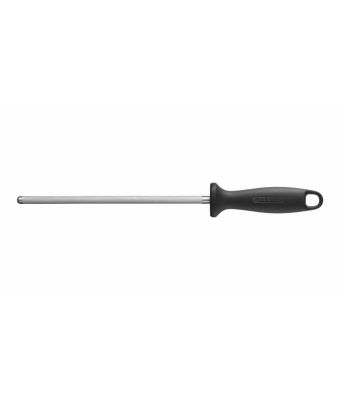 Zwilling 23cm Sharpening Steel (32576-231-0)£27.95 £23.00 (18% OFF)Next Day Delivery Available* order by 3pmIn stock
Zwilling 23cm Sharpening Steel (32576-231-0)£27.95 £23.00 (18% OFF)Next Day Delivery Available* order by 3pmIn stock -
30% OFF
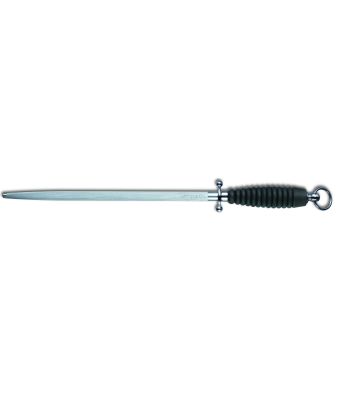 Victorinox 30cm Butchers Sharpening Steel - Round (78413)£50.99 £35.69 (30% OFF)Next Day Delivery Available* order by 3pmIn stock
Victorinox 30cm Butchers Sharpening Steel - Round (78413)£50.99 £35.69 (30% OFF)Next Day Delivery Available* order by 3pmIn stock -
21% OFF
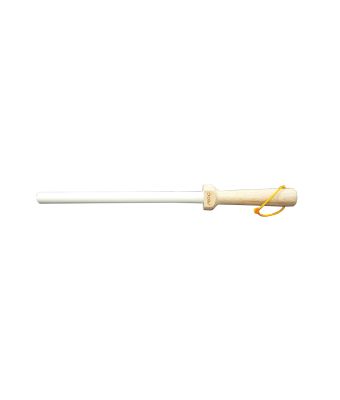 MAC Ceramic Sharpening Rod 8.5" (SR-85)£38.00 £30.00 (21% OFF)Next Day Delivery Available* order by 3pmIn stock
MAC Ceramic Sharpening Rod 8.5" (SR-85)£38.00 £30.00 (21% OFF)Next Day Delivery Available* order by 3pmIn stock -
20% OFF
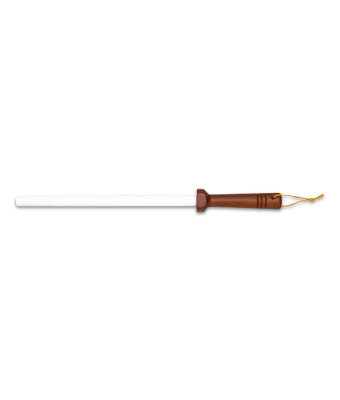 MAC Ceramic Honing Rod with Grooves 9.5" (SR-95)£59.00 £47.00 (20% OFF)Next Day Delivery Available* order by 3pmIn stock
MAC Ceramic Honing Rod with Grooves 9.5" (SR-95)£59.00 £47.00 (20% OFF)Next Day Delivery Available* order by 3pmIn stock -
20% OFF
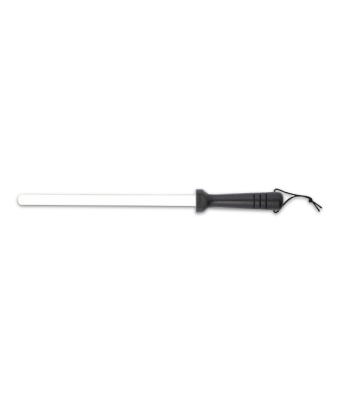 MAC Black Ceramic Honing Rod with Grooves 9.5" (SR-95BK)£59.00 £47.00 (20% OFF)Next Day Delivery Available* order by 3pmIn stock
MAC Black Ceramic Honing Rod with Grooves 9.5" (SR-95BK)£59.00 £47.00 (20% OFF)Next Day Delivery Available* order by 3pmIn stock -
43% OFF
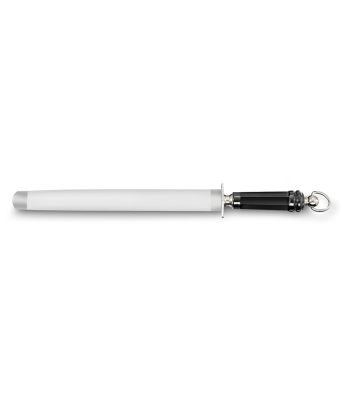 Lion Sabatier® Flat Rod Sharpening Steel 30cm (12")£50.50 Regular Price £42.95 Special Price £29.00 (43% OFF)Next Day Delivery Available* order by 3pmIn stock
Lion Sabatier® Flat Rod Sharpening Steel 30cm (12")£50.50 Regular Price £42.95 Special Price £29.00 (43% OFF)Next Day Delivery Available* order by 3pmIn stock -
45% OFF
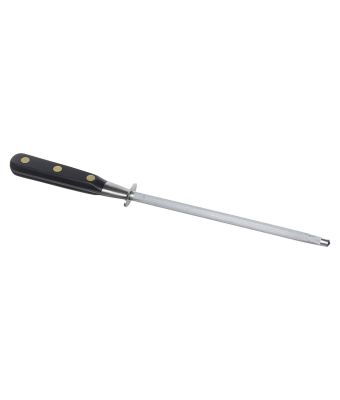 Lion Sabatier® Ideal Brass Rivets 20cm Sharpening Steel£41.50 Regular Price £34.95 Special Price £23.00 (45% OFF)Next Day Delivery Available* order by 3pmIn stock
Lion Sabatier® Ideal Brass Rivets 20cm Sharpening Steel£41.50 Regular Price £34.95 Special Price £23.00 (45% OFF)Next Day Delivery Available* order by 3pmIn stock -
10% OFF
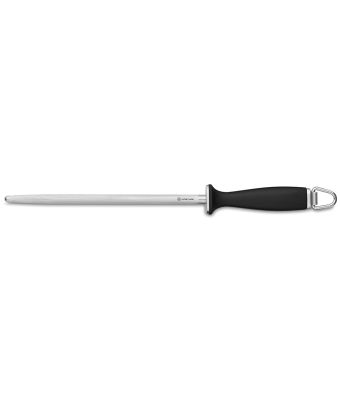 Wusthof 26cm Sharpening Steel (WT3049700626)£69.00 £62.00 (10% OFF)Next Day Delivery Available* order by 3pmIn stock
Wusthof 26cm Sharpening Steel (WT3049700626)£69.00 £62.00 (10% OFF)Next Day Delivery Available* order by 3pmIn stock -
21% OFF
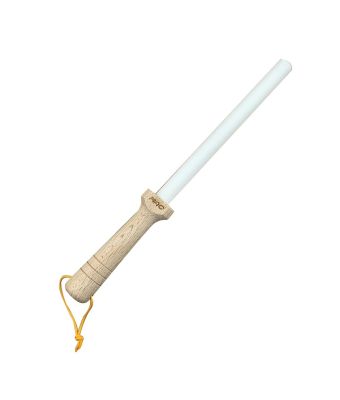 MAC Ceramic Sharpening Rod 180mm (SR-65)£38.00 £30.00 (21% OFF)Next Day Delivery Available* order by 3pmIn stock
MAC Ceramic Sharpening Rod 180mm (SR-65)£38.00 £30.00 (21% OFF)Next Day Delivery Available* order by 3pmIn stock -
18% OFF
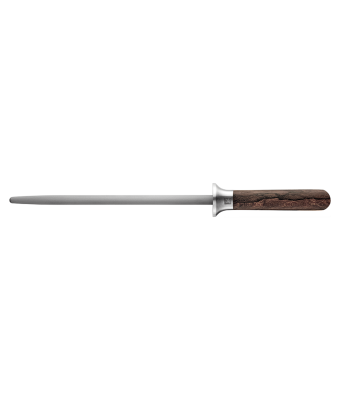 Zwilling Twin 1731 23cm Sharpening Steel (32579-360-0)£319.00 £263.00 (18% OFF)Next Day Delivery Available* order by 3pmIn stock
Zwilling Twin 1731 23cm Sharpening Steel (32579-360-0)£319.00 £263.00 (18% OFF)Next Day Delivery Available* order by 3pmIn stock -
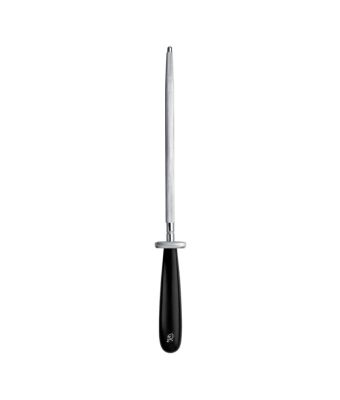 Robert Welch Signature Sharpening Steel 23cm£46.00Next Day Delivery Available* order by 3pmIn stock
Robert Welch Signature Sharpening Steel 23cm£46.00Next Day Delivery Available* order by 3pmIn stock -
20% OFF
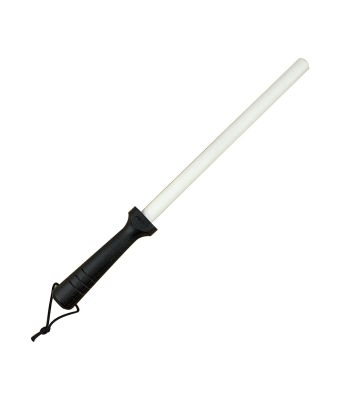 MAC Ceramic Sharpening Rod 215mm (SR-85BK)£45.00 £36.00 (20% OFF)Delivery 3-5 working daysIn stock
MAC Ceramic Sharpening Rod 215mm (SR-85BK)£45.00 £36.00 (20% OFF)Delivery 3-5 working daysIn stock -
30% OFF
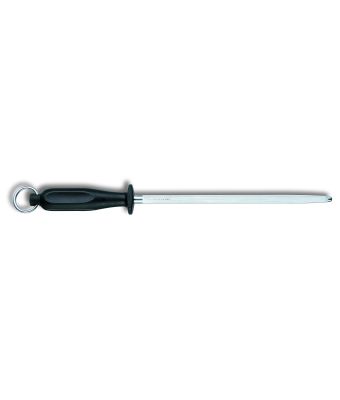 Victorinox 25cm Kitchen Sharpening Steel - Round (78303)£28.99 £20.29 (30% OFF)Delivery 3-7 working daysIn stock
Victorinox 25cm Kitchen Sharpening Steel - Round (78303)£28.99 £20.29 (30% OFF)Delivery 3-7 working daysIn stock -
29% OFF
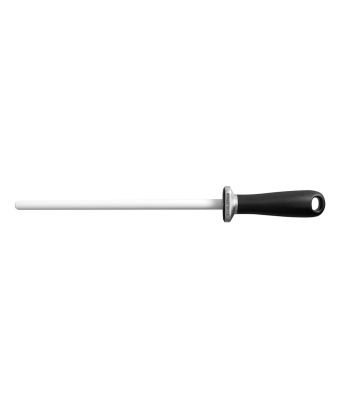 Rockingham Forge Equilibrium 30cm Ceramic Rod Sharpener (RF-1512C)£44.95 £31.95 (29% OFF)Delivery 1-2 working daysIn stock
Rockingham Forge Equilibrium 30cm Ceramic Rod Sharpener (RF-1512C)£44.95 £31.95 (29% OFF)Delivery 1-2 working daysIn stock -
19% OFF
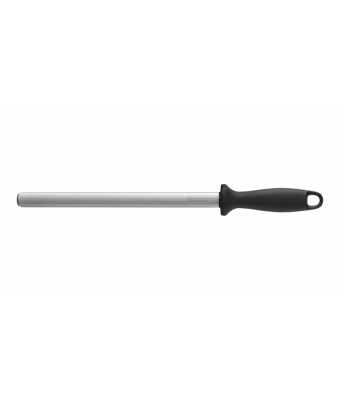 Zwilling 26cm Diamond Sharpening Steel (32520-261-0)£69.95 £57.00 (19% OFF)Delivery 3-5 working daysIn stock
Zwilling 26cm Diamond Sharpening Steel (32520-261-0)£69.95 £57.00 (19% OFF)Delivery 3-5 working daysIn stock -
30% OFF
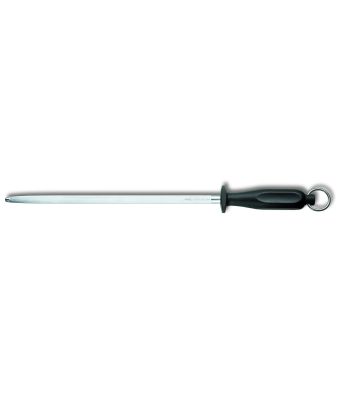 Victorinox 30cm Butchers Sharpening Steel - Round (78513)£31.99 £22.39 (30% OFF)Delivery 3-7 working daysIn stock
Victorinox 30cm Butchers Sharpening Steel - Round (78513)£31.99 £22.39 (30% OFF)Delivery 3-7 working daysIn stock -
15% OFF
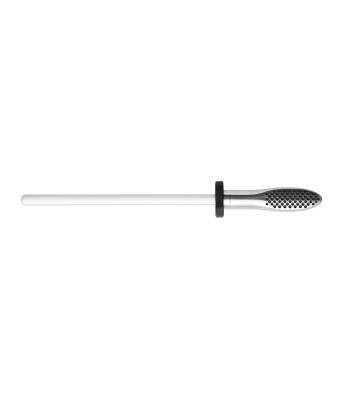 Global G74 - 20cm Ceramic Sharpening Steel (G-74)£130.00 £109.95 (15% OFF)Delivery 1-2 working daysIn stock
Global G74 - 20cm Ceramic Sharpening Steel (G-74)£130.00 £109.95 (15% OFF)Delivery 1-2 working daysIn stock -
30% OFF
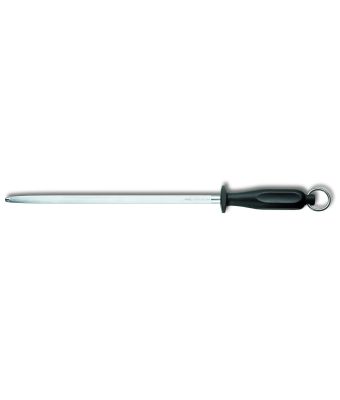 Victorinox 30cm Butchers Sharpening Steel - Oval (78523)£60.99 £42.69 (30% OFF)Delivery 3-7 working daysIn stock
Victorinox 30cm Butchers Sharpening Steel - Oval (78523)£60.99 £42.69 (30% OFF)Delivery 3-7 working daysIn stock -
10% OFF
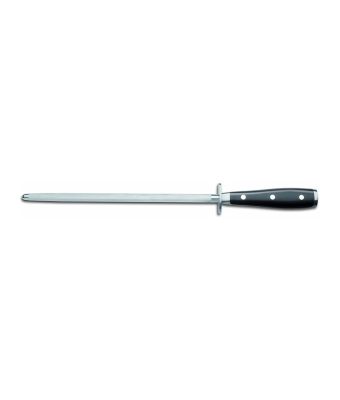 Wusthof Classic Ikon 26cm Sharpening Steel (WT3040385026)£149.00 £134.00 (10% OFF)Delivery 2-3 working daysIn stock
Wusthof Classic Ikon 26cm Sharpening Steel (WT3040385026)£149.00 £134.00 (10% OFF)Delivery 2-3 working daysIn stock -
10% OFF
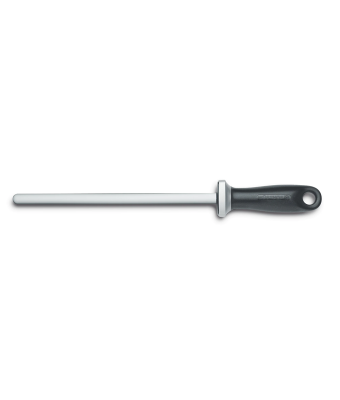 Wusthof 26cm Ceramic Sharpener (WT3049710226)£69.00 £62.00 (10% OFF)Delivery 2-3 working daysIn stock
Wusthof 26cm Ceramic Sharpener (WT3049710226)£69.00 £62.00 (10% OFF)Delivery 2-3 working daysIn stock -
10% OFF
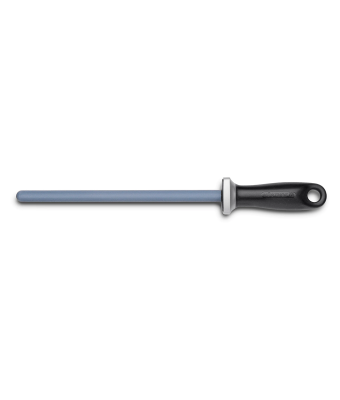 Wusthof 23cm Ceramic Sharpener (WT3049710126)£59.00 £53.00 (10% OFF)Delivery 2-3 working daysIn stock
Wusthof 23cm Ceramic Sharpener (WT3049710126)£59.00 £53.00 (10% OFF)Delivery 2-3 working daysIn stock -
10% OFF
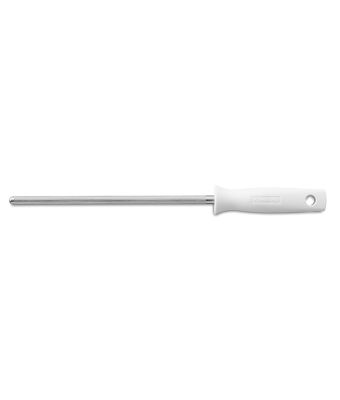 Wusthof Classic White Sharpening Steel 23cm (WT3040285023)£29.00 £26.00 (10% OFF)Delivery 2-3 working daysIn stock
Wusthof Classic White Sharpening Steel 23cm (WT3040285023)£29.00 £26.00 (10% OFF)Delivery 2-3 working daysIn stock
